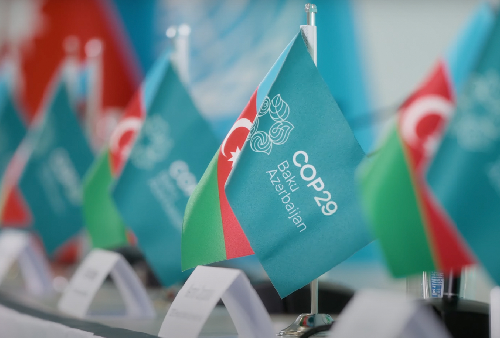

The 2024 United Nations Climate Change Conference or Conference of the Parties of the UNFCCC, more commonly known as COP29, is the 29th United Nations Climate Change conference. COP29 takes place in Baku, Azerbaijan from 11 to 22 November, 2024.
For the third year in a row, the ILO and the European Commission are hosting the Just Transition Pavilion, a convening space for events, meetings and knowledge sharing around just transition and climate action in cooperation with the UNFCCC, International Trade Union Confederation (ITUC) and International Organisation of Employers (IOE). Keeping the social dimension of climate change at the forefront of discussions is the focus of events being organized in the Just Transition Pavilion.
Read more on ilo.org/cop29
EU climate policies and justice: socio-economic impacts and pathways to equity
The European Union (EU) is pushing forward its climate policies included in the European Green Deal (EGD), such as the Emissions Trading System (ETS), the ETS 2, and the Carbon Border Adjustment Mechanism (CBAM), leading the charge to cut emissions and combat carbon leakage. Yet, these initiatives pose challenges: the ETS and the ETS 2 may result in uneven socio-economic impacts among and within Member States, and the CBAM brings up fairness concerns in global climate policies. Indeed, the EGD could lead to job losses in high-carbon industries, disproportionately impacting vulnerable workers, communities and regions reliant on these sectors for employment. Without a properly designed redistribution mechanism, carbon taxes will also disproportionately impact low-income households as they spend a higher percentage of their income on energy. Similarly, when it comes to transport, low-income households will find it difficult to cover higher transport costs, pushing people into further poverty and social exclusion if fairness considerations are not embedded in support policies.
Key policy discussions are needed on the social impacts of ETS/ETS2. These include the scope and funding of the Social Climate Fund, the Just Transition Mechanism and the Just Transition Fund, the lack of binding legislation on a just transition, and the need for additional policy and funding instruments to address existing gaps.
At the same time, the implementation of CBAM must safeguard a fair transition for global south countries affected by the EU's carbon pricing. It must tackle economic inequalities and ease the burden on these countries, while encouraging global climate action and keeping EU industries competitive. Indeed, to ensure a concrete Just Transition across Europe and the world, advanced economies must address these issues.
Starting from these considerations, the panel will try to answer the following questions: how can we lessen the potential unequal effects of climate policies within the EU? And how can we enhance European climate policies and international cooperation to reduce inequalities?


